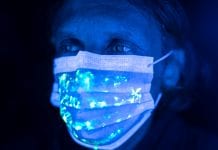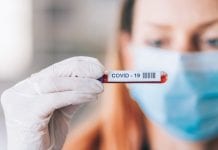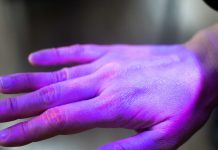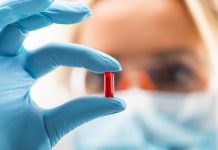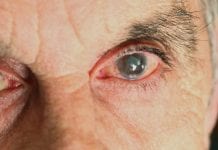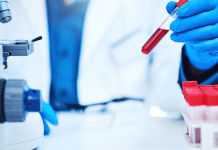Research & Innovation Related News
Study shows 99.9% of coronaviruses killed by far-UVC light
A new study has shown that 99.9% of coronaviruses can be killed when exposed to far-UVC light.
The study, carried out by researchers at Columbia...
Using Artificial Intelligence to determine COVID-19 severity
New technologies are informing the response to COVID-19 across the world, and a new mobile phone app is now using Artificial Intelligence (AI) to...
Breakthrough ultraviolet light development could help kill COVID-19 virus
Ultraviolet (UV) light is a commonly used method for killing bacteria, but could it help with disinfecting areas contaminated with COVID-19? A breakthrough discovery...
Could arketamine be a breakthrough therapy for depression?
Clinical trials are being carried out to test the efficacy of arketamine as therapy for depression, with the aim of offering an alternative to...
Tumour-tropic liposome technology could pave way for cancer treatments
A collaboration between Toshiba and Shinshu University has resulted in the development of a ‘tumour-tropic liposome technology’ for gene therapy that could pave the...
Coronavirus Global Response campaign aims for affordable vaccine for all
The European Commission’s Coronavirus Global Response campaign has teamed up with Global Citizen to launch the next phase of the campaign that aims to...
Programming uncertainty into AI can improve safety of robotic prosthetics
Programming for uncertainty in Artificial Intelligence (AI), as well as incorporating ‘computer vision’, can improve the safety of robotic prosthetics for users.
Walking on different...
Experts provide insights on COVID-19 antibody tests
In this article Professor Georgina Ellison-Hughes, Dr Rocio Martinez-Nunez, and Dr Rui Ribeiro Galao, Faculty of Life Sciences & Medicine, King’s College London, provide...
New technology can detect virus antibodies in just 20 minutes
New technology has allowed researchers to detect anti-avian influenza virus antibodies in blood serum in 20 minutes.
Using a portable analyser, the researchers have developed...
UV infection control market to reach €477.49m globally by 2027
A new report has shown that the UV infection control market is set to grow to USD $524.8m (€477.49m) globally by 2027 at 6.5%...
Explosion in telehealth market due to COVID-19
Due to the COVID-19 pandemic the telehealth market is set to see a massive explosion in growth as healthcare systems undergo rapid change.
Healthcare systems...
European Commission adds €122m for COVID-19 research and innovation
The European Commission has mobilised another €122m from its research and innovation programme, Horizon 2020, for urgently needed research into COVID-19.
The new call for expressions...
Digital therapy is an enabler, not a barrier, to mental health support
In this article Andy Blackwell, Chief Scientific Officer at Ieso Digital Health, discusses how digital therapy can be an enabler to mental health support.
Digital...
Drug combination shows promise for treating COVID-19
New findings have shown that a triple antiviral drug combination holds promise for the treatment of COVID-19.
Results from a randomised trial for treating COVID-19...
Cerebriu: machine learning for diagnostic medical imaging
Cerebriu’s pioneering Cerebriu Apollo technology aims to scale up clinical support through faster personalised diagnostic medical imaging.
While Danish medical technology provider Cerebriu is only...
Discover how AI can help with early detection of glaucoma
A new test combined with Artificial Intelligence is able to detect glaucoma progression up to 18 months earlier than current tests.
Glaucoma, the leading global...
Discover the new 3D printed ventilator that requires no electricity
Ventilators are currently in short supply across the world as healthcare systems race to treat patients suffering from COVID-19. Now, a research collaboration has...
Discover how sample pooling can increase coronavirus testing capacity
A team of scientists in Germany have developed a new procedure that will help increase coronavirus testing capacity.
The development will help to increase coronavirus...
Developing soft and flexible biocompatible electronic devices
Currently, medical devices used for pacemakers and implants are clunky, rigid, and non-biocompatible. Now, scientists are one step closer to developing soft and flexible...
Blueprints for better healthcare: tackling supply demand with open source
A new study has highlighted how free, open source hardware and 3D printing can help global healthcare systems tackle the demand for health supplies...

